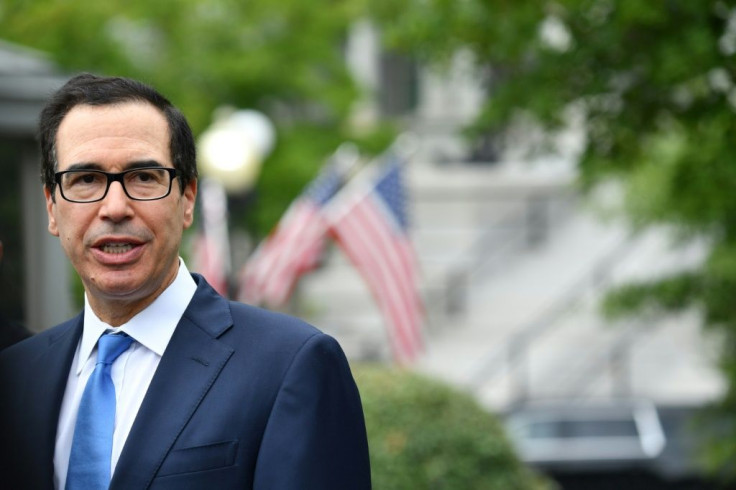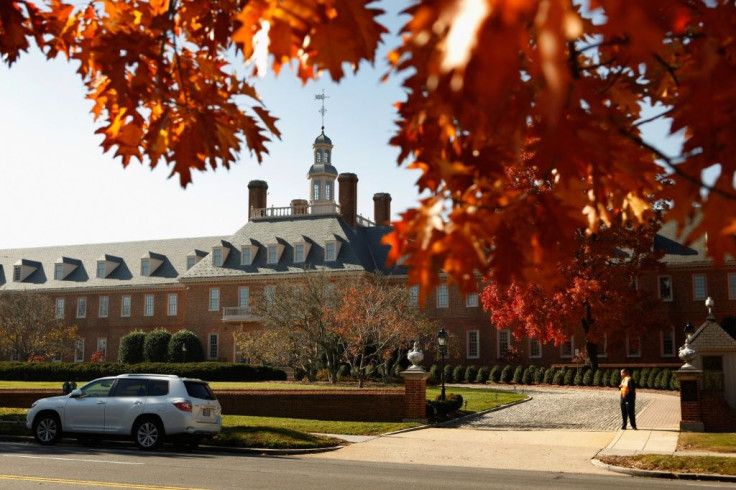US Seeks To Privatize Mortgage Giants A Decade After Market Meltdown

A decade after the mortgage bubble burst sparking the Great Recession, President Donald Trump wants to privatize two financial linchpins of the multi-trillion-dollar American housing sector.
In Senate testimony on Tuesday, US Treasury Secretary Steven Mnuchin laid out the administration's reform plans for housing finance, including the government-sponsored enterprises known as Fannie Mae and Freddie Mac.
"In their current form, Fannie and Freddie are still too big to fail," Mnuchin told lawmakers, saying their size and importance created liabilities for the financial system that could require another unpopular taxpayer bailout.
The two organizations -- which together back about half of all US residential mortgages -- were placed under conservatorship, or effectively nationalized, during the mortgage meltdown of 2008.
A $190 billion government bailout that year saved the two entities, as defaults by risky so-called sub-prime borrowers soared nationwide.
Little understood by the general public, the two institutions do not in fact originate mortgages.
Rather, they pump liquidity into the housing sector by buying mortgages from banks and then packaging them as securities that they can either keep or sell onward to investors with an implicit guarantee.
This system eases the financing of long-term lending such as 30-year mortgages, which are rare outside the United States but have been key to achieving the "American dream" of homeownership.
At the moment of the housing market's collapse, the home ownership rate had hit 70 percent before tumbling as foreclosures swept the nation.
Also testifying Tuesday, Mark Calabria, director of the Federal Housing Finance Agency, said a 25 percent decline in the housing market would cause $43 billion in losses for the financial institutions.
"In their current financial condition, the enterprises are not equipped to withstand a downturn in the housing market," he said.
The two are allowed just $6 billion in capital reserves despite owning or guaranteeing nearly $6 trillion in mortgages, he said.
In a report last week, the US Treasury laid the groundwork for reforms to the two institutions, long a policy goal of the Trump administration.
Even though Fannie Mae and Freddie Mac are hybrid bodies traded on Wall Street, because of the conservatorship, their dividends are paid into the Treasury -- something private investors would love to change.
As the real estate market has recovered and grown stronger in recent years, Fannie Mae and Freddie Mac -- whose familiar names arise out the abbreviations for Federal National Mortgage Association (FNMA) and the Federal Home Loan Mortgage Corporation (FHLMC) -- have sent their robust profits straight into the government's coffers.
In all, since the federal takeover, they have sent $300 billion to taxpayers, more than repaying the cost of their bailout.

The Mnuchin reform plan involves dozens of proposed legislative and regulatory measures and aims first of all to recapitalize both organizations by allowing them to keep some of their profits.
This should create a capital cushion to protect them in the event of another mortgage catastrophe, officials believe.
In effect, the Treasury wants to end the tacit government guarantee -- which more or less required the original bailout -- and instead plans to create a guarantee that is both explicit and already paid for, which will apply to some mortgage bonds.
According to Mnuchin, a reformed federal housing finance system will also boost economic growth.
Once a Goldman Sachs executive, Mnuchin is also a former mortgage banker, having taken over the California bank IndyWest, renamed OneWest, during the crisis.
The release of the housing finance reform plan comes as shareholders begin to make progress in a legal battle to stop the government's collection of Fannie Mae and Freddie Mac profits.
A federal appeals court last week overturned a lower court finding which had supported the government policy -- something Mnuchin told CNBC on Tuesday the administration could appeal to the Supreme Court.
© Copyright AFP 2024. All rights reserved.




















